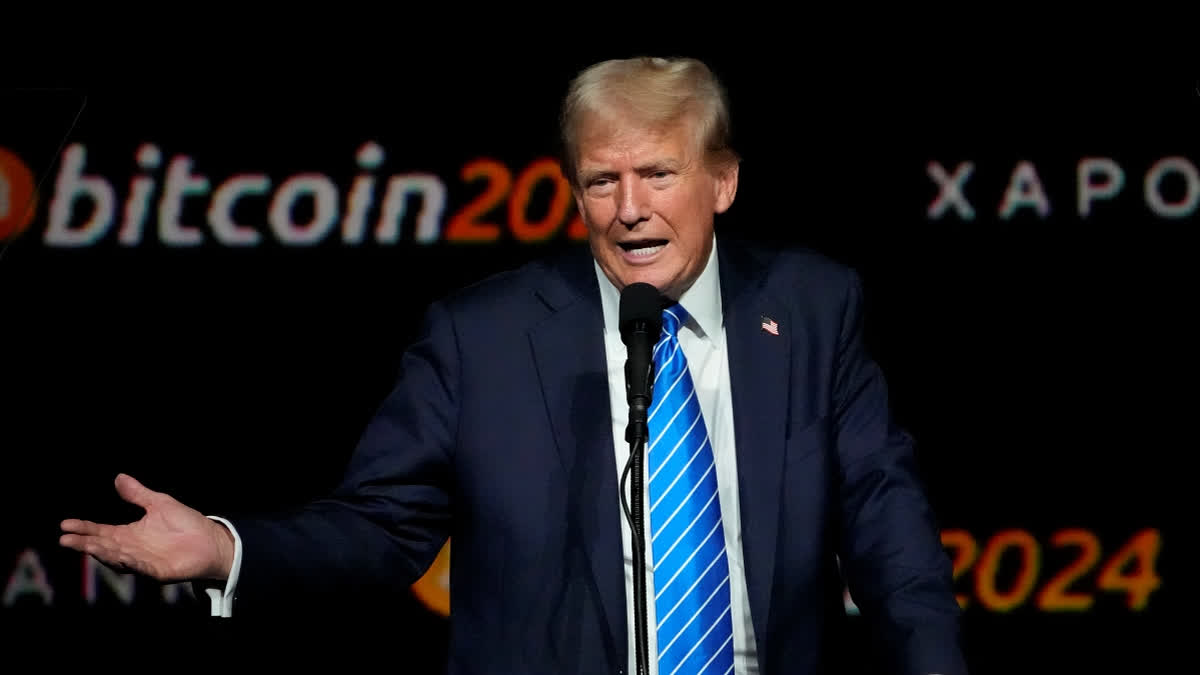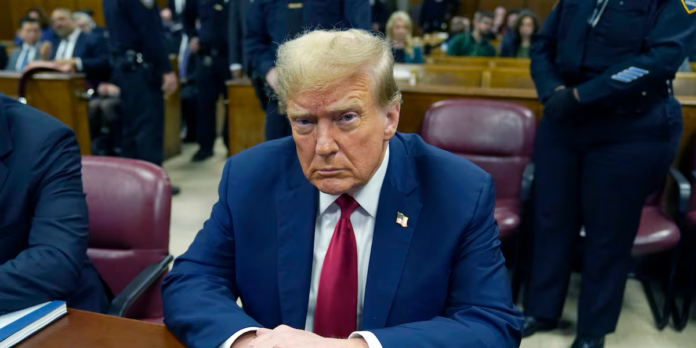Trump hush money conviction was upheld on Monday after a New York judge rejected former President Donald Trump’s request to throw out the verdict. Justice Juan Merchan dismissed Trump’s arguments that a recent Supreme Court ruling nullified his conviction, marking another blow for the president-elect as he prepares for his upcoming inauguration.
The Judge’s Ruling
The case, centered around falsifying business records to hide a payment to adult film actor Stormy Daniels, saw Trump found guilty on 34 counts in May 2024. Trump’s defense team argued that the conviction would impede his ability to govern effectively as he prepares to take office on January 20, 2025.
In a detailed 41-page decision, Justice Juan Merchan ruled that Trump’s actions — “decidedly personal acts of falsifying business records” — did not infringe upon his ability to execute presidential duties. He rejected Trump’s claim that overturning the conviction was essential to protecting executive authority, stating that the matter remained a personal issue rather than one involving presidential powers.
Trump’s legal team did not immediately respond to requests for comments following the ruling.

The Hush Money Case: An Overview
The case stemmed from a $130,000 payment made in 2016 by Trump’s former lawyer Michael Cohen to adult film star Stormy Daniels. The payment was allegedly made to ensure her silence about an alleged sexual encounter with Trump in 2006 — a claim Trump has repeatedly denied.
Prosecutors argued that Trump falsely recorded the payment as legal expenses in his business records to cover up the scandal during his 2016 presidential campaign. A Manhattan jury ultimately found him guilty of falsifying business records, making him the first U.S. president — sitting or former — to be convicted of a criminal offense.
Trump has pleaded not guilty and called the case a politically motivated attack spearheaded by Manhattan District Attorney Alvin Bragg, a Democrat.
Trump’s Legal Challenges And Political Fallout
Trump’s legal troubles come at a pivotal time as he prepares to take office following his victory over Democratic Vice President Kamala Harris in the November 5 election. Although Biden defeated Trump in 2020, Biden’s surprise withdrawal from the 2024 race earlier this year paved the way for Harris’s nomination.
The Manhattan case, however, has put Trump in a historically unprecedented position: a president-elect facing a criminal conviction while preparing to assume the highest office in the United States.
- Historic First: Trump is the first U.S. president to face a criminal conviction.
- Political Strategy: Trump has maintained that the case is a “witch hunt” orchestrated by political rivals to derail his comeback campaign.
- Legal Precedent: Justice Merchan’s ruling strengthens the precedent that personal legal matters can persist regardless of a candidate’s elected status.
The Role Of Michael Cohen In Trump’s Conviction
Michael Cohen, once Trump’s trusted attorney, played a central role in the hush money case. Cohen admitted in court that he arranged the payment to Stormy Daniels under Trump’s direction to influence the outcome of the 2016 election.
Cohen’s testimony was pivotal in securing Trump’s conviction. The lawyer turned whistleblower has been a vocal critic of Trump in recent years, describing his actions as an abuse of power to protect his image.
- Cohen’s Statement: “I made the payment to Stormy Daniels to protect Mr. Trump’s campaign. It was illegal, and I regret it.”
- Trump’s Defense: Trump denied any wrongdoing, claiming that the payments were unrelated to his election campaign.
Legal Experts React To The Verdict
Legal analysts have described Justice Merchan’s decision as a major victory for the Manhattan District Attorney’s Office. It underscores that no individual — even a sitting president-elect — is above the law.
Prominent legal expert Laurence Tribe said, “The ruling reinforces accountability in a democracy. Trump’s conviction is personal, not political, and will remain valid unless overturned through due process.”
However, Trump’s supporters continue to frame the conviction as an extension of partisan politics. Republican allies argue that the case represents “lawfare” aimed at undermining Trump’s presidency.
Implications For Trump’s Presidency
Trump’s conviction raises questions about how his presidency will unfold. While the U.S. Constitution does not bar a convicted individual from serving as president, Trump’s legal battles are expected to remain a significant distraction.
Key implications include:
- Governance Challenges: Trump’s legal team has expressed concerns that ongoing litigation could affect his ability to focus on governance.
- Public Perception: The case could polarize public opinion further, with supporters rallying behind Trump and opponents highlighting the conviction.
- Future Appeals: Trump’s lawyers are expected to pursue further appeals to challenge the verdict, potentially escalating the case to higher courts.
Trump’s Next Move
Trump’s legal strategy is likely to focus on appealing the conviction in hopes of overturning it before his inauguration. Political analysts believe Trump will use the case to galvanize his base, framing himself as a victim of political persecution.
Meanwhile, the Manhattan District Attorney’s Office has emphasized that Trump’s conviction stands as a testament to justice and accountability.
Final Thoughts On Trump’s Conviction
Justice Juan Merchan’s ruling marks a significant moment in U.S. legal and political history. The decision to uphold Trump’s conviction reinforces the principle that personal misconduct cannot be shielded under political power.
As Trump prepares to take office on January 20, 2025, his presidency will face unprecedented scrutiny. Whether his conviction strengthens or weakens his political position remains to be seen, but the case has already cemented its place as a defining moment in American democracy.

